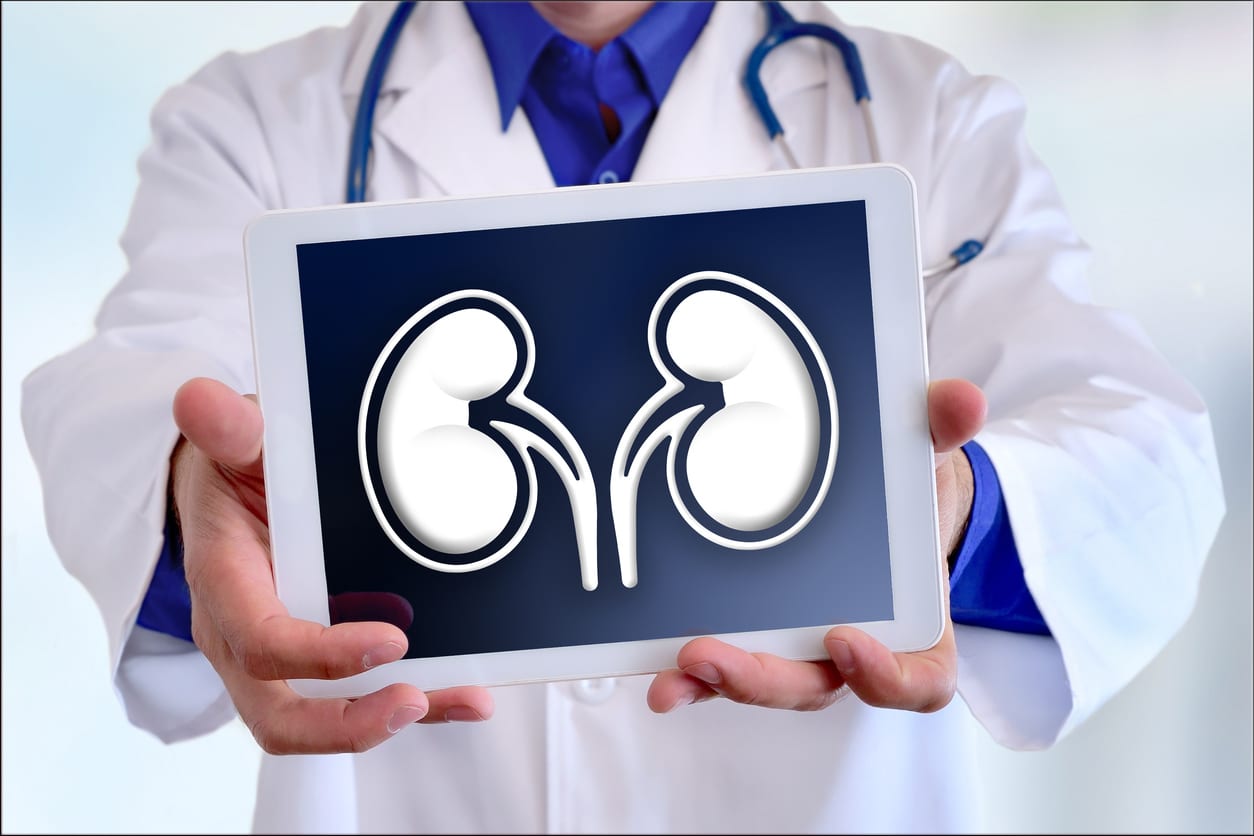May 29, 2024

Chronic kidney disease (CKD) is characterized by the gradual loss of kidney function. The function of your kidney is to filter waste and excess fluids from your blood and excrete them into the urine. In patients with CKD, the waste and excess fluids build up in the body. In the early stages of CKD, there may be few signs and symptoms and oftentimes loss of kidney function is not known until there is significant damage to the kidney.
There are five stages of chronic kidney disease and seven ICD-10-CM codes to report these.
The Glomerular Filtration Rate (GFR) is the rate at which the kidneys filter waste and correlates to a patient’s kidney function. Normal GFR varies according to age, sex, and body size. The GFR is not a one-time laboratory value. The GFR is tested repeatedly over a period of three months to establish the chronicity (chronic vs. acute) and stage of kidney disease.
Stage 1: Patient will have GFR of 90+ with normal kidney function. Kidney structural abnormalities, urine findings or genetic trait pointing to kidney disease. Treatment for this stage is observation, blood pressure control and identifying the cause to try and reverse it. ICD-10-CM code N18.1 (CKD stage 1) is used to report this stage.
Stage 2: Patient will have GFR of 60-89 with mildly reduced kidney function, kidney structural abnormalities, urine findings or genetic trait pointing to kidney disease. Treatment for this stage is monitoring creatinine level, blood pressure control and reduce risk factors. ICD-10-CM code N18.2 (CKD stage 2) is used to report this stage.
Stage 3a: Patient will have GFR 45-59 with mild to moderately reduced kidney function. Treatment is to continue to monitor and stop or slow the worsening kidney function. ICD-10-CM code N18.31 (CKD stage 3a) is used to report this stage.
Stage 3b: Patient will have GFR 30-44 with moderate to severely reduced kidney function. Treatment is to continue to monitor and stop or slow the worsening kidney function. ICD-10-CM code N18.32 (CKD stage 3b) is used to report this stage.
Stage 4: Patient will have GFR 15-29 with severely reduced kidney function. Treatment is planning for end-stage renal failure by creating access site for dialysis and obtaining assessment for possible future transplant. ICD-10-CM code N18.4 (CKD stage 4) is used to report this stage.
Stage 5: Patient will have GFR <15 with very severe kidney function/failure. The treatment is to start dialysis and transplantation of donor kidney. ICD-10-CM code N18.5 (CKD stage 5) is used for patients documented to have CKD stage 5 without yet receiving dialysis. If the patient has reached the need for dialysis then this is coded in ICD-10-CM with N18.6 (ESRD).
CKD affects around 26 million Americans.
Signs and symptoms sometimes go undiagnosed and progress because they are so subtle.
Here are the 10 key kidney disease symptoms:
- Change in urination (more, less, amount is different than normal, foamy or bubbly urine or blood in the urine and difficulty with urination
- Swelling
- Skin rash/itching
- Pain in the leg, back or side
- Ammonia breath/metallic taste in the mouth
- Nausea and vomiting
- Feeling cold
- Shortness of breath
- Dizziness and trouble with concentration
- Fatigue
CKD occurs when a disease/condition impairs kidney function causing damage to the kidney.
Leading causes of CKD:
- Diabetes
- Hypertension
- Glomerular disease
- Congenital kidney diseases or inherited kidney disorders/diseases
- Post poisoning or medication taken over long period of time
- Post trauma to the kidney
- Recurrent pyelonephritis
- Vesicoureteral reflux
- Prolonged urinary tract obstruction
Diabetes is the number 1 cause of CKD.
Please note: when coding DM with CKD of unspecified stage, there is an instructional note in the ICD-10-CM Tabular List that states “Use additional code to identify stage of chronic kidney disease (N18.1-N18.6).” Code N18.9 is not included in this range of codes and provides no further specificity than what is included in the title of code E11.22. In this case, only E11.22 would be needed for a diagnosis of DM with CKD of unspecified stage. It would not be appropriate to report N18.9 as an additional code based on the instructional note in the Tabular. When hypertension and CKD are documented, the code for CKD, unspecified stage (N18.9) would be reported since the Tabular List does include this code in the note. Following the instructional notes in the ICD-10-CM Tabular List is key to coding that is correct and complete.
References:
ICD-10-CM Index
kidney.org/news/newsroom/factsheets/Diabetes-And-CKD
heart.org/HEARTORG/Conditions/More/Diabetes/WhyDiabetesMatters/Kidney-Disease-Diabetes_UCM_313867_Article.jsp
mayoclinic.org/diseases-conditions/chronic-kidney-disease/symptoms-causes/syc-20354521
renal.org/information-resources/the-uk-eckd-guide/ckd-stages/
nationalkidneycenter.org/chronic-kidney-disease/symptoms/
HIA’s comprehensive auditing approach includes acute coding audits and Clinical Documentation Integrity (CDI) audits.
Subscribe to our Newsletter
Recent Blogs
Related blogs from Medical Coding Tips
This is a series of blogs about the importanc...
Facial feminization surgery includes a range ...
Complex coding scenarios often lead to delays...
Provider documentation is the foundation of a...
Subscribe
to our Newsletter
Weekly medical coding tips and coding education delivered directly to your inbox.


.png)


